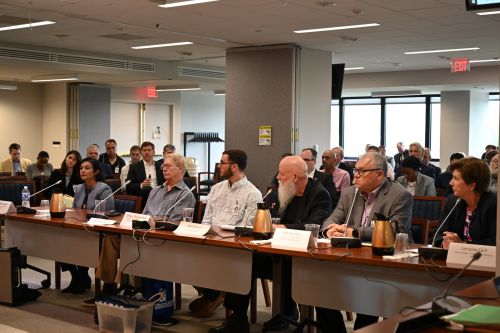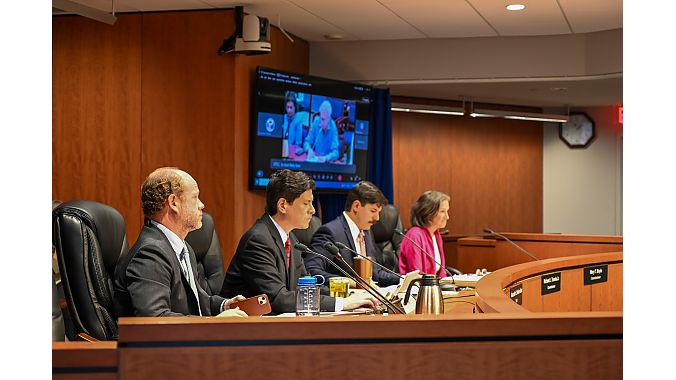BETHESDA, Maryland (BRAIN) — Mike Fritz left last week's Consumer Product Safety Commission public hearing on lithium-ion battery safety confident he and other industry representatives convinced the agency mandatory regulations are needed.
"Whether they have the resources to take effective action in the short term remains to be seen," said Fritz, Human Powered Solutions' chief technology officer, who has worked with the National Bicycle Dealers Association to educate retailers about safe storage and handling of batteries.
Matt Moore, PeopleForBikes' policy counsel, agreed.
"That was part of my testimony that they don't currently have the resources to effectively enforce regulations for various reasons, one of them being the de minimis exemption and the difficulty inspecting those shipments," Moore said. "Whether they have the resources to do the rulemaking, that is really dependent on their budget and their budget priorities. The current climate in the House is not good for additional appropriations. In fact they're looking to cut what has been allocated for agencies across the board."
Fritz noted several goals accomplished, including communicating the following to the commission:
- Properly designed, engineered, manufactured, tested, certified, used and stored lithium-ion batteries are safe for use in micromobility applications.
- If a quality battery pack fails, in all likelihood, failure was due to damage and/or misuse.
- Safe and reliable battery packs are expensive as they use quality components, are properly engineered and manufactured, are tested to applicable standards, and are certified by qualified agencies. This presents a barrier to ownership for financially challenged consumers, but cheap, dangerous battery packs are not the answer.
- Enhancements must be made to the battery distribution infrastructure to mitigate the consequences of battery fires if and when they happen.
- The micromobility industry must launch a concerted effort to educate all entities that distribute, sell, service, and/or use micromobility products to proper storage, use and care of these batteries.
- Cheap lithium-ion battery packs are dangerous lithium-ion battery packs, especially when they are abused through severe service and charged with mismatched chargers.
- Mandatory safety standards regulating the integrity of lithium-ion battery packs are needed urgently; minimally, UL 2271 needs to be mandated immediately,
- De minimis reforms are urgently needed to block the importation of substandard battery packs that will further exacerbate the problem. (Senate legislation was introduced in June to restrict non-market economies like China from using the de minimis threshold to import potentially dangerous products — including e-bikes and lithium-ion batteries — into the U.S. marketplace without accountability for product integrity.)
- Enforced mandatory safety standards are not a short-term solution as long as hundreds of thousands potentially dangerous battery packs are currently in circulation.
"We covered lots of ground and did our best to inform the commission," said Heather Mason, the National Bicycle Dealers Association's president, who also addressed the commission. "The commission at the conclusion expressed their intention to take necessary action and thanked those who testified for the time and resources. I have had further follow-up with the office and they intend to seek additional clarity as needed so they are best informed."
The nearly four-hour hearing consisted of three panels of independent standards groups and consumer safety advocates.
"It's not lost on me that this broad group of experts — including industry, voluntary standards bodies — are all calling on us to implement a mandatory standard," said Commissioner Richard L. Trumka Jr. at the end of the meeting.
In New York City, 87 injuries and 13 deaths have been attributed to lithium-ion battery fires, according to FDNY Commissioner Laura Kavanagh, who was the first panelist to address the commission. She said micromobility use in the city "dramatically multiplied" during the pandemic.
Then four days later on Monday morning, two more people were injured after a fire attributed to a lithium-ion battery occurred in a four-story Bronx apartment building.
"I am thankful for Matt and Mike for the combined effort and support of all to highlight the industry's support of the CPSC and willingness to assist," Mason said. "I feel confident that this was a big step in the right direction."






